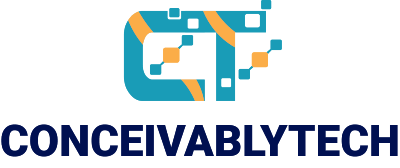As the world becomes more digitalized, cyber attacks follow that trajectory. There will be estimated to be over 33 billion account breaches in 2023. Malicious attacks like phishing, ransomware, DDoS, or other types cause real damage to companies and individual users.
Even if we don’t account for blatant attacks in cyberspace, you can still be tracked and targeted. The entire digital marketing economy relies on tracking the user’s behavior to push their products relentlessly. Letting a certain amount of privacy is expected, and the nature of the Internet and its traffic doesn’t allow absolute security, privacy, and anonymity.
However, there are legitimate ways to increase your online privacy, avoid being targeted by advertisers and data collectors, and make attacks difficult for malicious groups.
Proxy Servers Can Mask Your Online Identity
Each time you watch Netflix, browse through websites or use some cloud service like an email client or online documents, you send a data pack from your device to a server that hosts the address. It is a straightforward communication channel where the destination address is public, and you also have assigned a unique IP address from the Internet Service Provider.
While there is nothing strange about how most online traffic is being conducted, if you like to preserve or increase the level of privacy and security, revealing your IP might bother you.
Your IP to a knowledgeable person can reveal the location, browsing preferences, assigned ISP, and much more. An IP address is like a digital identity that verifies you on a network.
Changing or masking your IP can increase privacy and open up a new world of possibilities. One of the most effective ways to change or hide your IP is with proxy servers.
Types Of Proxies
You can see proxy servers as a huge train station where your original data request lands, change trains, and go to the destination. On the way back, the response from the destination servers comes back to the station believing that it is the client address, and the proxy sends it back to you without third-party knowledge. Proxies basically act as a middleman, and the core purpose is to hide the user’s IP address, which then brings numerous benefits.
A residential proxy server is one of the most effective types. The main benefit of residential proxies is their authenticity. Such providers offer IPs connected to genuine users assigned from Internet Service Providers. If you want to use proxies for marketing purposes, a genuine IP will be more efficient and won’t raise suspicion.
You can use static or rotating residential proxies. Both services borrow IP addresses from regular users and have their pros and cons.
Static residential proxies have the same authentic IP address, and you don’t have to worry about potential misuse from that IP address as it is not shared. It is ideal for services like managing social media or others that like the consistency of users’ online identities. Simultaneously, static IPs just like your own from ISP can leave a more substantial footprint, and for advanced uses like web scraping, destination servers can detect too much traffic and, over time, block the IP.
Rotating residential proxies are borrowed from real customers, and you can get IP addresses from computers, phones, and other online devices. They have all the benefits of static residential proxies, with a caveat of rotating IP addresses, making it harder to detect unusual browsing habits, thus further increasing your online privacy.
Outside of residential proxies, you can also use more affordable datacenter proxy servers with better speed. Datacenter proxies don’t have IPs from regular users and their ISPs, so that they won’t fare well against advanced protection. It will be much easier to detect web scrapers or marketing researchers that use datacenter proxies. That doesn’t mean you can’t utilize them for geo-restricted content, hiding your IP, and limited web scraping of unprotected competitors.
What Can I Do With Proxies Outside Of Better Privacy
Hiding your IP is an essential step to increase your online privacy. It also benefits your online security because your data traffic is encrypted and misdirected, so malicious users will have a more challenging time going after you. That doesn’t mean you are absolutely secure. It would be best if you still carefully use firewalls and antivirus software.
You can use proxies for more than just increased security and privacy. Web scraping is the most common use case for proxy servers. A proxy hides your IP, and scrapers collect all the data from a destination website. Scraping is used for marketing research. You can learn about competitors’ pricing policies much faster. If you’re part of an e-commerce or marketing team, you can get valuable insights by collecting competitors’ data. Local IPs can also help you test whether your digital advertising campaign is running as planned. Marketers can also use proxies to improve SEO or generate leads.
Professionals that use social media might need multiple accounts, which is not something Instagram, TikTok, and other companies like. With proxy servers, you can manage numerous accounts, increase reach visibility, and deliver messages to more people.
Proxies can bypass geo-restricted content, allowing you to watch, play, or listen to exclusive content in different regions or countries.
Conclusion
To increase online privacy, you can hide or change your IP address, and the best way to do it is through proxy servers. In the world of growing cyber threats and all-out tracking from digital marketers, you should consider increasing online privacy.
While absolute security and anonymity on the Internet may be challenging, proxy servers emerge as legitimate tools to fortify online privacy and impede malicious activities. By concealing your IP address, residential proxy servers play a crucial role in offering authenticity and minimizing the risk of detection.
Whether opting for static or rotating residential proxies, users can navigate the digital landscape with increased privacy and security. Also, proxy servers unlock many possibilities—from web scraping for marketing research to managing multiple social media accounts and bypassing geo-restrictions for exclusive content access. In a digital era fraught with risks, leveraging residential proxy servers becomes a prudent step toward enhancing online security, privacy, and anonymity.


